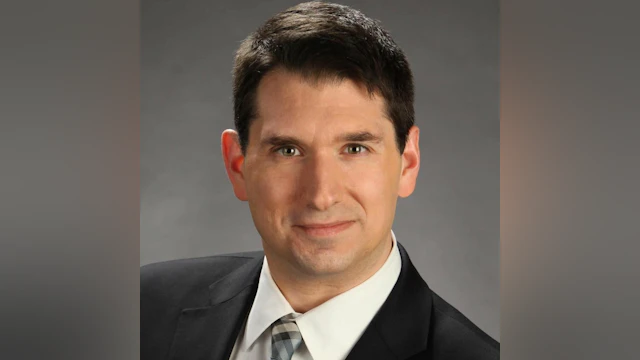I remember the first time I argued before a judge. I was representing the Commonwealth of Pennsylvania 17 years ago in a preliminary hearing for aggravated assault on a child.
In the long and contentious hearing, I was up against a very experienced criminal defense attorney, and I was a mere law school trainee. But after making my very first objection (“calls for speculation”) and delivering an impassioned summation, I won the hearing and the felony charge was held for trial.
Over the next seven years of my career as a prosecutor and criminal defense attorney, I tried more than 200 cases, including 33 jury trials to verdict. But there was one case I never got to argue, the one with the highest personal stakes for me.
I never got to argue for my father’s life. He died by suicide just three days before my 17th birthday.
My father remains something of a mysterious figure to me. I don’t know what his problems were, real or perceived. To the outside world, and to me, he appeared to lead a blessed life. He was truly a Renaissance man, a physician, polyglot, artist, and athlete. He had a loving family, professional fulfillment, and the respect of the community.
While there are common warning signs for suicide, and it’s good for everyone to be aware of them, some people are especially good at hiding what they’re going through, and it’s not always possible to spot them. I had no warning that my father was suicidal, and thus no opportunity to try and persuade him to live. Yet I often fantasize about having the opportunity to do just that.
I imagine traveling back in time to my junior year of high school and telling my father what I once heard a Chicago rabbi say, that “resilience is knowing that there is almost always a solution to a problem.” In my fantasy, I use all of my advocacy skills to persuade my father not to lose hope, and I remind him that what his beloved Stephen Sondheim taught us is true: “No one is alone.”
I know this is only a fantasy, and that it is too late to save my father from suicide. But I take solace in knowing that it is not too late to save others. I have not resigned myself to the inevitability of suicide or mental illness.
That is why, at the start of the pandemic, I left my position with an international campus organization headquartered here in Washington, D.C. and joined the staff of Treatment Advocacy Center, a leading mental health non-profit dedicated to eliminating the barriers to treatment for severe mental illness.
Seeing so much death, despair and doubt in this country jolted me out of my complacency. No longer could I sit on the sidelines while so many other families were touched by suicide. According to the World Health Organization, every year more than 700,000 people take their own life and there are many more people who attempt suicide. Every suicide is a tragedy that affects families, communities and entire countries and has long-lasting effects on those left behind.
But there is reason to hope. As I am learning as part of my new career in mental health policy, there are common sense solutions that many of this country’s mental health organizations agree on, including stamping out stigmatizing language, decriminalizing mental illness, ensuring equity in the insurance coverage of mental health and substance use disorder care, repealing discriminatory laws that hinder access to treatment and restoring desperately needed psychiatric treatment beds.
In my job as director of communications for the Treatment Advocacy Center, I have the privilege of telling stories about courageous people who are fighting to improve access to mental health treatment for themselves and their loved ones. Every day, I am encouraged by the progress that my organization, AFSP and others are making to change the system.
But the biggest reason I have hope is that I now can see how many others are with me in the fight against suicide. Whenever I speak with my Treatment Advocacy Center colleagues or the many dedicated volunteers I have met through my local AFSP chapter, it’s clear to me that our shared tragedies have brought us together for a great purpose – that we may use our words and our work to save lives.
Geoffrey Melada is an attorney and the director of communications at Treatment Advocacy Center.
Visit the AFSP Action Center to stay up to date on the federal and state bills that need your support.
